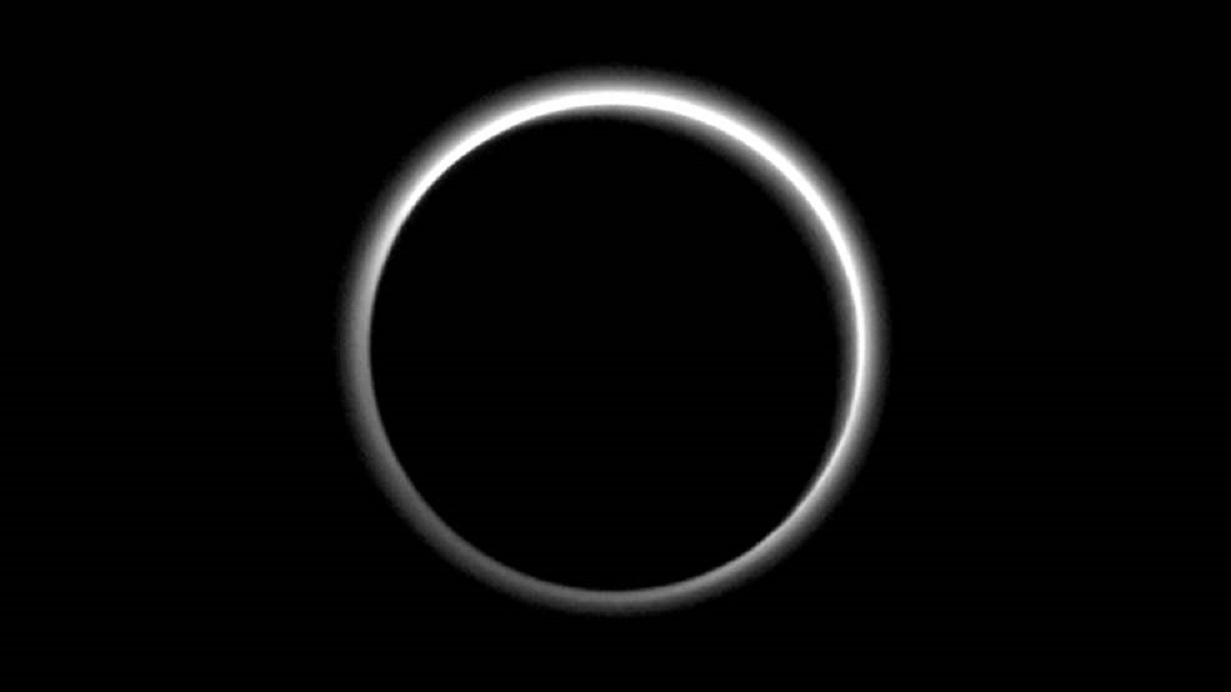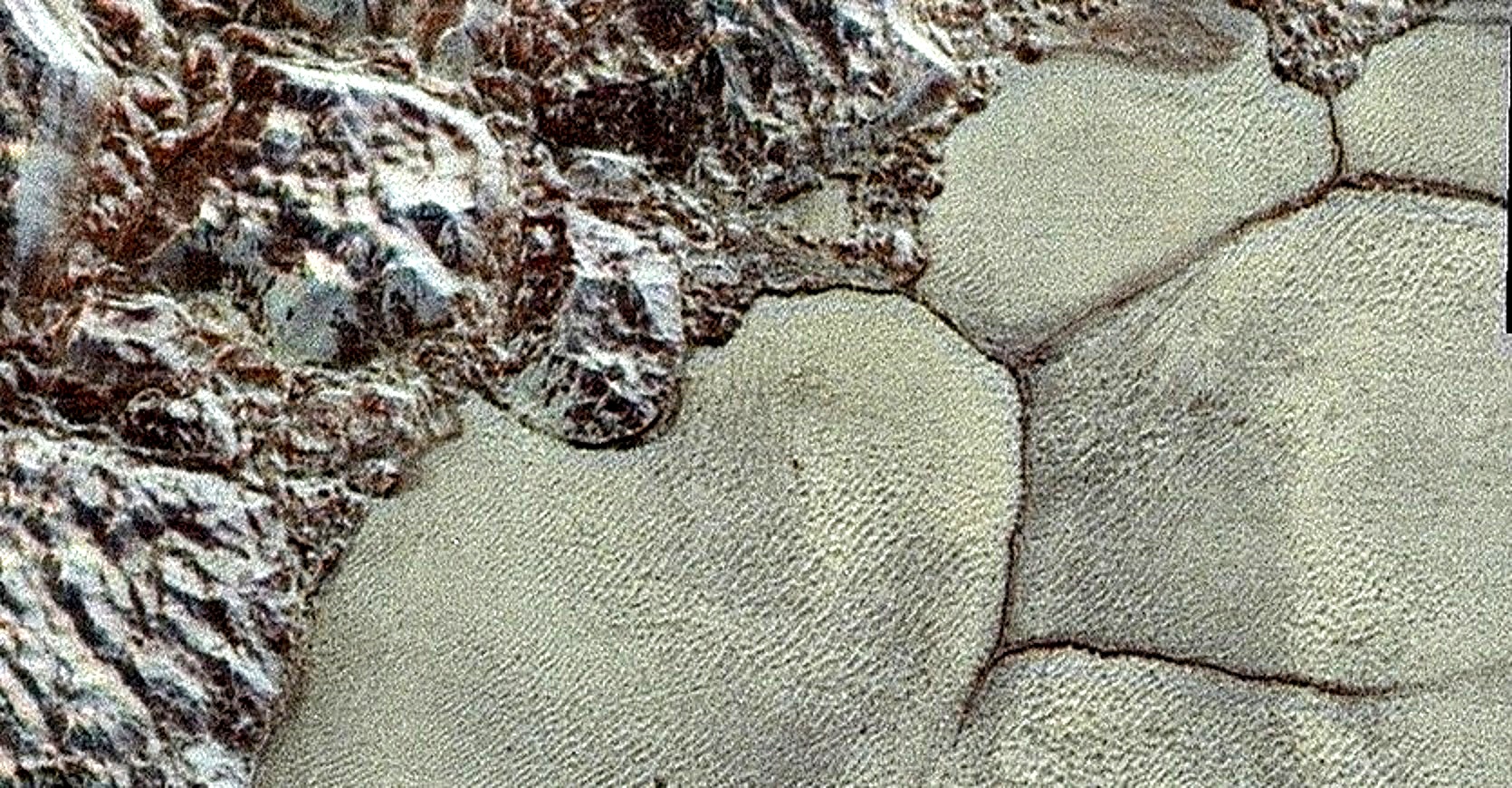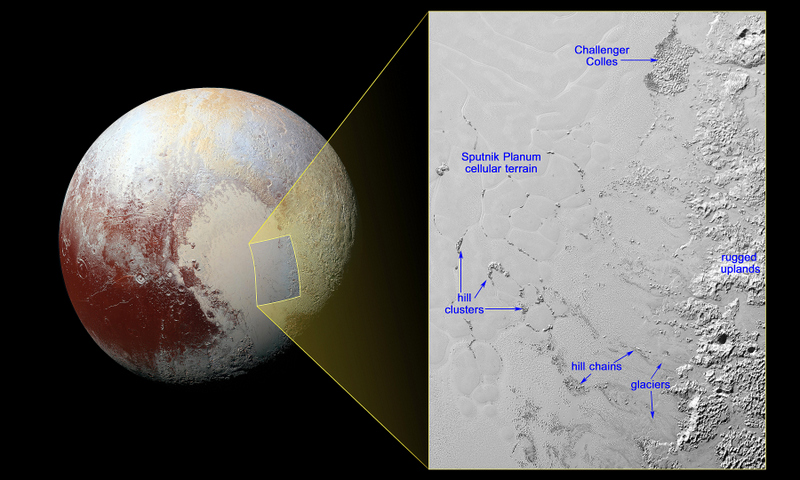Imaging Pluto
Backlit Pluto with blue nitrogen atmosphere halo (credit: New Horizons)
In 2015, the NASA's New Horizons spacecraft arrived at Pluto, the most distant planetary body known in the solar system. The mission's images allowed geologic discoveries that beat the best of anyone's expectations. The planetary voyager took photographs from several different perspectives as the spacecraft approached Pluto and as it turned to speed away from the small planet. The probe's camera utilized the design tool of backlit photography to capture its final images that can provide important atmospheric details in that light.

Backlit Pluto (credit: New Horizons)
According to NASA, as New Horizons turned it: "looked back towards the sun and captured a near-sunset view of the rugged, icy mountains and flat ice plains extending to Pluto’s horizon. The smooth expanse of icy plain (right) is flanked by rugged mountains up to 11,000 feet high. To the right, rougher terrain is cut by apparent glaciers."

Pluto's mountains and frozen plains (credit: New Horizons)
Researchers investigating the remarkable imagery concluded that they highlight intricate flow lines of glaciers (probably frozen nitrogen) with the front of the slow moving ice outlined by blue arrows. The glacier originates from mountains, perhaps made of water ice, through a 2-5 mile wide valley.

Pluto's frozen nitrogen glaciers (credit: New Horizons)
The probes spectacular imagery and gathered data is still being interpreted. A video reviews some of the mission's initial wow-worthy geologic discoveries. WHB